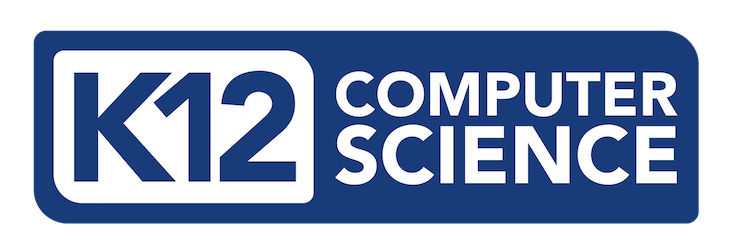Writers
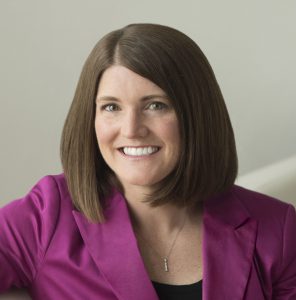 Julie Alano
Julie Alano
Computer Science Teacher, Hamilton Southeastern High School
Fishers, Indiana
Julie Alano teaches computer science at Hamilton Southeastern High School. She has expanded the computer science program since starting there as a math teacher in August 1998. The school now offers four levels of computer science, and she is working to include computer science in the K–8 curriculum. With a master’s degree in educational technology, Julie also started a student-led tech squad in the school. In May 2016, Julie was named the Hamilton Southeastern Schools District Teacher of the Year. Julie serves as president of the Hoosier Heartland Chapter of the Computer Science Teachers Association (CSTA) after helping to start the group. She is also a member of the CSTA Computer Science Advocacy Leadership Team and a Code.org Computer Science Principles Facilitator.
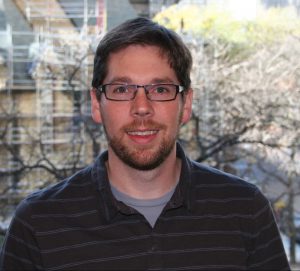 Derek Babb
Derek Babb
Computer Science Teacher, Omaha North Magnet High School
Omaha, Nebraska
Derek Babb is a computer science teacher at Omaha North Magnet High School. He has taught computer science for 11 years in both suburban and urban high school settings. In addition to writing for the K–12 Computer Science Framework, he has been involved in writing computer science standards for the state of Nebraska as well as local school districts. He has been involved in computer science advocacy at the local level, serving as a founding member and president of the Omaha Computer Science Teachers Association chapter. Derek is committed to expanding computer science education in his school and district and hopes to serve as a coach and advisor to new computer science teachers as they get started.
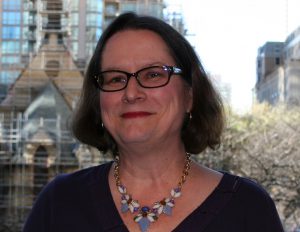 Julia Bell
Julia Bell
Associate Professor of Computer Science, Walters State Community College
Morristown, Tennessee
Julia Bell is an associate professor of computer science at Walters State Community College. She previously worked with Northwest Arkansas Community College in Bentonville, AR. She has worked as a networking program director and systems analyst for Fayetteville Police Department, TN Code Academy programming instructor, tnAchieves scholars mentor, Quality Matters certified designer and course reviewer, and A.C.E.-certified forensic examiner. She received the 2012 Faculty of the Year award and multiple Good as Gold Faculty awards from Phi Theta Kappa. For two years she has worked with Nicewonger Foundation Summer Coding Camp teaching coding and networking to middle and high school students, as a writer for the Interim CSTA K–12 Computer Science Standards, Revised 2016, and as a Nicewonger Foundation mobile presenter. Julia’s research interests include cybersecurity, cybersecurity impacts on children, and NSX networks of the future.
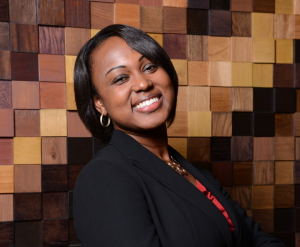 Tiara Booker-Dwyer
Tiara Booker-Dwyer
Education Program Specialist, Maryland State Department of Education
Baltimore, Maryland
Tiara Booker-Dwyer is an education program specialist for the Maryland State Department of Education (MSDE). In this position, she provides leadership to local school systems and postsecondary institutions to plan, develop, and implement computer science, engineering, and technology education instructional programs. She develops, coordinates, and facilities professional learning experiences and assists in departmental initiatives related to school reform and science, technology, engineering, and math education. Prior to joining MSDE, Tiara was a program director for the Maryland Business Roundtable, where she developed strategic alliances and led stakeholder groups in the implementation of programs designed to prepare students for future job markets. Tiara began her career conducting research in neuroscience at Johns Hopkins before transitioning into education, where she is collaboratively leading efforts to implement high-quality computer science learning experiences statewide.
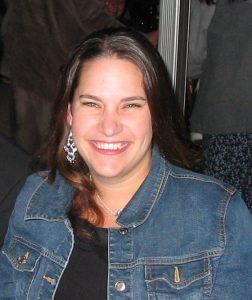 Leigh Ann DeLyser
Leigh Ann DeLyser
Director of Education and Research, CSNYC
New York, New York
Leigh Ann DeLyser is the director of education and research at the NYC Foundation for Computer Science Education (CSNYC). In this role, Leigh Ann is working to expand computer science to all schools in the New York City public school system. CSNYC is the private partner in the $80 million initiative requiring every school to offer one unit of computer science to every student in public schools. She is a co-author of the Running on Empty report, a 50-state analysis of computer science standards. Prior to obtaining her doctorate in computer science and cognitive psychology from Carnegie Mellon University, Leigh Ann was a high school computer science and math teacher and a two-term member of the board of directors of the Computer Science Teachers Association. She also helped start the Academies for Software Engineering in New York City as a proof of concept that all students could learn computer science.
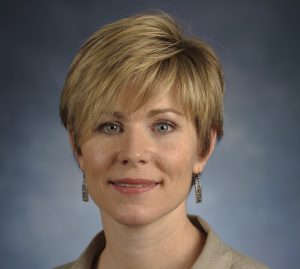 Caitlin McMunn Dooley
Caitlin McMunn Dooley
Deputy Superintendent for Curriculum and Instruction, Georgia Department of Education
Associate Professor, Georgia State University
Atlanta, Georgia
Caitlin McMunn Dooley is the deputy superintendent for curriculum and instruction for Georgia’s public schools and an associate professor at Georgia State University. Her research on children’s and teachers’ learning, digital literacy development, and computational thinking has been published in more than 50 articles, chapters, and editorials. Caitlin’s latest National Science Foundation-funded project studies how to integrate computer science across the curriculum in Grades 3–5. Caitlin promotes the integration of computer science as an essential part of K–12 academic learning and of digital literacy development. Caitlin taught early childhood and elementary grades in Virginia before becoming a teacher educator, professor, mother, researcher, and school leader.
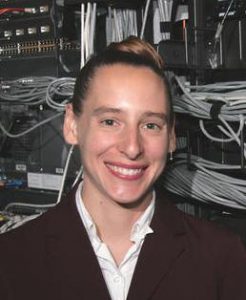 Diana Franklin
Diana Franklin
Director of Computer Science Education, UChicago STEM Ed
Chicago, Illinois
Diana Franklin is the director of computer science education at UChicago STEM Ed. She has taught college-level computing for 14 years as tenured teaching faculty at University of California, Santa Barbara and as an associate professor at California Polytechnic State University, San Luis Obispo. Her research focuses on understanding how children learn computing concepts in elementary school to design learning environments and curricula. She is a recipient of the National Science Foundation CAREER award, the National Center for Women & Information Technology faculty mentoring award, and three teaching awards. She is the author of A Practical Guide to Gender Diversity for CS Faculty, from Morgan Claypool.
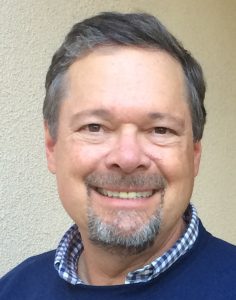 Dan Frost
Dan Frost
Senior Lecturer, University of California, Irvine
Irvine, California
During the two decades Dan Frost has taught computer science at the university level, he has maintained a strong interest in K–12 computer science education. His 1997 SIGCSE (Special Interest Group on Computer Science Education) paper Fourth Grade Computer Science, based on many years of in-classroom teaching and research, contributed to the recent upswing in computer science education at the primary and secondary levels. From 1997 to 1999, Dan chaired the Computer Science Teachers Association committee that wrote A Model Curriculum for K–12 Computer Science: Level 1 Objectives and Outlines. He was the principal investigator on an National Science Foundation grant that intertwined computer science, game design, and cultural education for American Indian high school students, who created games that retold traditional stories and cultural practices.
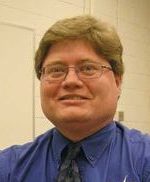 Mark A. Gruwell
Mark A. Gruwell
Co-Facilitator, Iowa STEM Council Computer Science Workgroup
Estherville, Iowa
Mark A. Gruwell co-facilitates the Iowa STEM Council Computer Science Workgroup, which advocates and promotes K–12 computer science education initiatives in Iowa. Mark started computer programming in high school and continued programming in college, where he achieved recognition from the Florida Bandmasters Association for creating BandBase, an application that automates scheduling and other processes for district and statewide music festivals. While serving as chief academic officer of Iowa Lakes Community College, Mark led efforts to create and implement the college’s two-year Computer Gaming Design & Development Program. In addition to teaching summer computer camps, Mark is an entrepreneur who designs computer applications that assist colleges with student advising, adjunct faculty scheduling and credentialing, and accreditation.
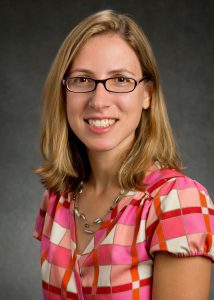
Maya Israel
Assistant Professor, University of Illinois at Urbana Champaign
Champaign, Illinois
Maya Israel is an assistant professor in the College of Education at the University of Illinois at Urbana Champaign. Her primary areas of specialization include supporting students with disabilities and other struggling learners’ meaningful engagement in science, technology, engineering, and math (STEM), with emphases on computational thinking and computer programming. She researches accessible instructional models and technologies that promote student engagement, collaborative problem solving, and persistence. Maya is currently a co-principal investigator on a National Science Foundation STEM+C grant to create learning trajectories that align computational thinking with math instruction. She has published in top-ranking journals such as Exceptional Children, Journal of Research on Technology in Education, Journal of Research in Science Teaching, and Computers & Education.
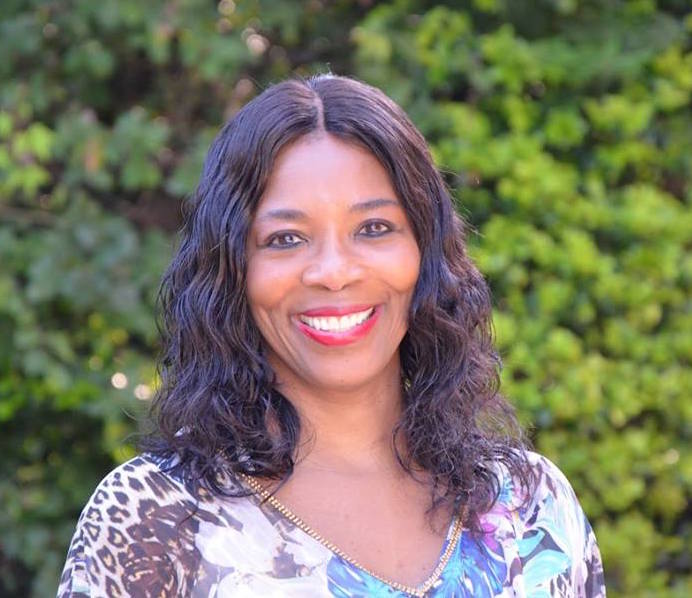 Vanessa Jones
Vanessa Jones
Instructional Technology Design Coach, Austin Independent School District
Austin, Texas
Vanessa Jones is an instructional technology design coach for the Austin Independent School District. She is a Code.org Texas facilitator and has trained hundreds of educators in computer science basics. She was named one of Intel’s Education 20 Most Inspiring Educators and has presented at numerous national and state conferences, such as the International Society for Technology in Education, showcasing computer science initiatives. Vanessa has written several grants to enrich computer science infusion in the elementary and middle school classroom. She is a member of the CS4TX (Computer Science for Texas) organization, and her passion is to continue to develop a community of computer science learners to learn something new every day. She believes that all students should have access to understand the basics in computer science and that computer science is the great equity equalizer.
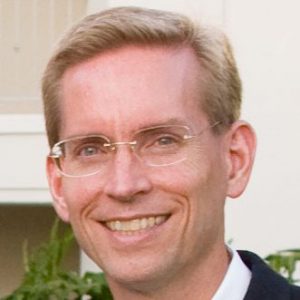 Richard Kick
Richard Kick
Mathematics and Computer Science Teacher, Newbury Park High School
Newbury Park, California
Richard Kick teaches math and computer science at Newbury Park High School. Rich earned a mathematics education degree from the University of Illinois at Urbana Champaign and a master’s degree in mathematics from Chicago State University. He taught Advanced Placement® (AP) computer science using Pascal beginning in the first year of AP computer science, followed by C++ and then Java. After working as a C++ programmer at Fermi National Accelerator Laboratory, Rich served as a College Board exam reader, table leader, question leader, and Computer Science Test Development Committee member. He is a five-time Computer Science Principles Pilot instructor and is currently the co-chair of the Computer Science Principles Development Committee.
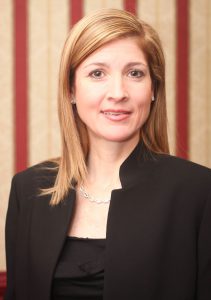 Heather Lageman
Heather Lageman
Executive Director of Leadership Development, Baltimore County Public Schools
Towson, Maryland
Heather Lageman serves as the executive director of leadership development for Baltimore County Public Schools in the Office of Organizational Development. She is president of the Learning Forward Maryland Affiliate, president-elect of the Learning Forward Foundation, and vice president of Maryland Affiliate of the Association for Supervision and Curriculum Development. Heather has served as the director of curriculum for the Maryland State Department of Education (MSDE), and she managed the statewide implementation of the Maryland Teacher Induction Program. During Race to the Top, she served as Race to the Top local education agency director for Maryland and managed both programmatic and fiscal aspects of the district projects. Heather formerly served as an MSDE specialist managing No Child Left Behind Title IIA and providing leadership for the state teacher professional development programs and policies, as well as the professional development coordinators. Prior to that, she served as a specialist in MSDE’s Secondary English Language Arts Office, where her responsibilities included development and implementation of county curriculum, assessments, and professional development. Heather is dedicated to supporting the professional learning and development of inspired and innovative educators.
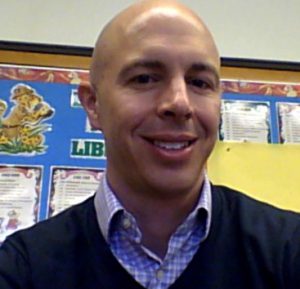 Todd Lash
Todd Lash
Doctoral Student/Contributing Member, University of Illinois Doctoral Student/CSTA K–8 Task Force
Champaign, Illinois
Todd Lash is an elementary educator of 17 years. Having enjoyed time as a classroom teacher and school library media specialist over the last three years, Todd worked as an instructional coach for computer science. Currently a first-year doctoral student at the University of Illinois, Todd served on the team for the Interim CSTA K–12 Computer Science Standards, Revised 2016 and is active in the Computer Science Teachers Association (CSTA) K–8 Task Force. As part of a National Science Foundation STEM+C grant, Todd is part of a team working to develop computer science learning trajectories through an integrated math curriculum.
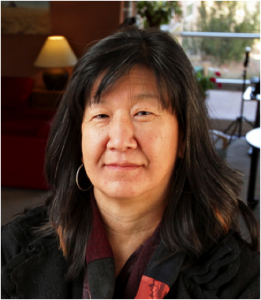 Irene Lee
Irene Lee
Researcher, Massachusetts Institute of Technology
Cambridge, Massachusetts
Irene Lee is a researcher in the Massachusetts Institute of Technology’s Scheller Teacher Education Program and Education Arcade. She is the founder and director of Project GUTS: Growing Up Thinking Scientifically and previously was the principal investigator of New Mexico Computer Science for All, Young Women Growing Up Thinking Computationally, and GUTS y Girls. Irene is the chair of the Computer Science Teachers Association (CSTA) Computational Thinking Task Force and served as a member of the team for the Interim CSTA K–12 Computer Science Standards, Revised 2016. Previously, she designed and developed educational and video games for Electronic Arts and Theatrix Interactive and worked in informal education as a science specialist. Irene is the past president of the Supercomputing Challenge and the Swarm Development Group and the past director of the Learning Lab at Santa Fe Institute.
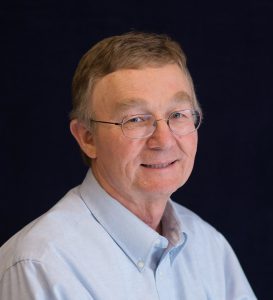 Carl Lyman
Carl Lyman
Specialist over Information Technology Class Cluster, Utah State Board of Education
Salt Lake City, Utah
Carl Lyman started teaching programming to his third grade students in 1982. He brought his Apple II+ computer from home to school each day. He taught problem solving and programming to his students using Turtle Graphics and Terrapin Logo. His students learned problem solving, loops, if-then statements, and procedures. Today it is called “coding.” Carl spent more than 30 years as a teacher—six years as an elementary teacher and more than 27 years teaching computer classes, computer applications, programming, digital media, and information technology support classes. For 10 years, he worked at the Utah State Board of Education in career and technical education, overseeing information technology (which includes computer science), digital media, web development, and computer programming courses. He worked hard in Utah to train teachers to teach computer science and make more computer science opportunities available for students. Carl has recently retired.
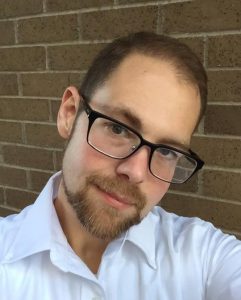 Daniel Moix
Daniel Moix
Computer Science Education Specialist, Arkansas School for Mathematics, Sciences & Arts
Hot Springs, Arkansas
Daniel Moix has taught computer science since 2003 at the Arkansas School for Mathematics, Sciences & Arts; College of the Ouachitas; and Bryant High School. He is the Computer Science Teachers Association (CSTA) Arkansas vice president, a member of the CSTA Computer Science Advocacy Leadership Team, and Arkansas’s first K–12 computer science education specialist. Daniel was the 9–12 grade-level lead for the Interim CSTA K–12 Computer Science Standards, Revised 2016 and a recipient of the 2015 Presidential Award for Excellence in Mathematics and Science Teaching.
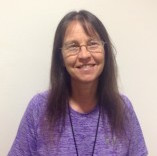 Dianne O’Grady-Cunniff
Dianne O’Grady-Cunniff
Computer Science Teacher, La Plata High School
La Plata, Maryland
After teaching computer science in university, college, and high school, Dianne O’Grady-Cunniff is working on projects to bring computer science to all students in K–12. Focusing on curriculum development and teacher training and support for the past few years, she is a lead teacher for the CS Matters in Maryland team and a Code.org facilitator. She worked with Charles County Public Schools to train hundreds of teachers to teach computer science and bring computer science to every school in the district for the past two years. Computer science education is Dianne’s passion, and she believes that every child should have the opportunity to create with technology.
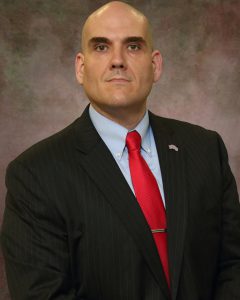 Anthony A. Owen
Anthony A. Owen
Coordinator of Computer Science, Arkansas Department of Education
Little Rock, Arkansas
Anthony A. Owen serves as Arkansas’s coordinator of computer science within the Arkansas Department of Education (ADE). He began his career in education as a math and science teacher and then served as ADE’s K–12 mathematics and computer science specialist. Anthony currently serves as the state lead for the development and implementation of Gov. Asa Hutchinson’s computer science initiative. In this role, he advises and coordinates with multiple national and state entities, including serving as a member of the Southern Regional Education Board’s Commission on Computer Science, Information Technology and Related Career Fields, as well as Gov. Hutchinson’s Computer Science Task Force, which identifies the state’s computer science and technology needs. Anthony was recently elected as the state department representative to the Computer Science Teachers Association. Anthony received a bachelor of science degree in mathematics with minors in education and computer science and a master’s degree in educational leadership from Henderson State University. He received a juris doctorate from the Bowen School of Law at the University of Arkansas at Little Rock in 2013 and was admitted to the Arkansas bar in 2014.
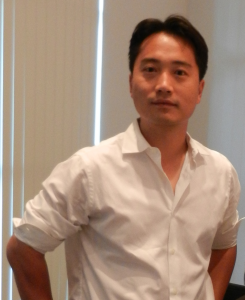 Minsoo Park
Minsoo Park
Director of Teaching and Learning, Countryside School
Champaign, Illinois
Minsoo Park is the director of teaching and learning at Countryside School. In 10 years of teaching, he has primarily served as a middle school computer science/algebra teacher, a technology coordinator, and an Middle Years Program International Baccalaureate coordinator in Chicago Public Schools. For past three years, he served as an enrichment and technology specialist in Unit 4 Champaign School District, implemented student-driven projects, and developed schoolwide computer science and math integration units that emphasize the metacognition and learning process through computer science concepts and computational thinking practices. He has been recognized with the Those Who Excel Award by the Illinois State Board of Education for technology innovation. He is certified in computer science, math, social science, physical science, and technology education.
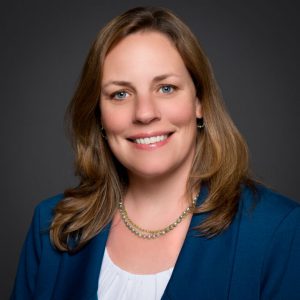 Shaileen Crawford Pokress
Shaileen Crawford Pokress
Visiting Scholar, Wyss Institute at Harvard, K–12 Curriculum Designer
Cambridge, Massachusetts
Shaileen Crawford Pokress (Shay) is a curriculum developer specializing in K–12 computer science. Shay is currently a visiting scholar at Harvard’s Wyss Institute for Bioinspired Engineering, where she is developing standards-based computer science curricula around the unique capabilities of Root, a robot designed specifically for learning computational thinking. Prior to joining the Root team, Shay served as director of instruction at Project Lead The Way, where she developed Advanced Placement® computer science courses and was the lead writer for Launch Computer Science, a widely adopted curriculum that uses an infusion approach to connect problem-based computer science to K–5 content standards. At the Massachusetts Institute of Technology Media Lab, she developed and directed the education program for App Inventor, a platform for building mobile apps that aims to democratize mobile computing. As senior research associate at TERC, Shay focused on teacher professional development in mathematics and science. Shay earned her bachelor of science degree in computer science from Cornell University and her master’s degree from Harvard Graduate School of Education. She believes that access to quality computer science education is a social justice issue.
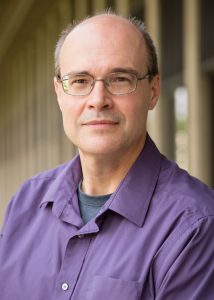
George Reese
Director of MSTE, MSTE Office at University of Illinois at Urbana Champaign
Champaign, Illinois
George Reese is the director of the Office for Mathematics, Science, and Technology Education (MSTE) in the College of Education at the University of Illinois at Urbana Champaign. The MSTE office works to enhance technology-supported teaching and learning in mathematics and science through curriculum design and teacher professional development partnerships with schools and districts. Prior to working at MSTE, George was a high school mathematics teacher at the Santa Fe Indian School in Santa Fe, NM. He is currently the board president of the Illinois Council of Teachers of Mathematics.
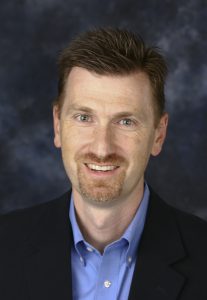 Hal Speed
Hal Speed
Founder, CS4TX
Austin, Texas
Hal Speed is an advocate for computer science education for all students in grades K–12 and believes these skills are necessary for socioeconomic mobility and the future prosperity of nations in the digital age. He founded CS4TX (Computer Science for Texas) to coordinate activities across Texas and represent the state in the national CSforAll initiative and the Expanding Computing Education Pathways Alliance. Hal is a product experience engineer at Dell and serves as a Code.org facilitator, Computer Science Teachers Association chapter president, and Texas Computer Education Association Tech-Apps/Computer Science Special Interest Group vice president. He holds a bachelor’s degree in electrical engineering and a master’s degree in business administration from Virginia Tech.
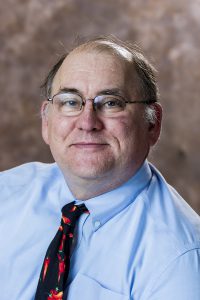 Alfred Thompson
Alfred Thompson
Computer Science Teacher, Bishop Guertin High School
Nashua, New Hampshire
Alfred Thompson is a high school computer science teacher at Bishop Guertin High School and is a member of the Computer Science Teachers Association board. He has been a professional software developer, a textbook author, a developer evangelist, a school technology coordinator, a school board member, and more. Alfred sees himself as a computer science education activist working to help reach more young people with the knowledge that they can make the world a better place through software. He is the author of the popular Computer Science Teacher blog.
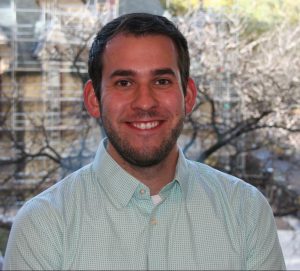 Bryan Twarek
Bryan Twarek
Computer Science Program Administrator, San Francisco Unified School District
San Francisco, California
Bryan Twarek (BT) is the computer science program administrator for the San Francisco Unified School District (SFUSD), where he is working to expand computer science instruction to all students and all schools within San Francisco public schools. His goal is to ensure that all SFUSD students have equitable access to rigorous and engaging computer science instruction, from prekindergarten to 12th grade. To this end, he oversees policy, curriculum development, and professional development. He is also a writer for the Interim CSTA K–12 Computer Science Standards, Revised 2016 and a board member for Computer Using Educators San Francisco (an affiliate of the International Society for Technology in Education). Previously, he has worked as dean, teacher, instructional coach, and technology integration specialist. BT graduated from Yale University with a degree in psychology and human neuroscience. He earned his master’s degree in urban education policy and administration from Loyola Marymount University.
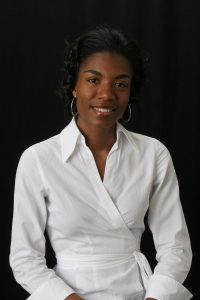 A. Nicki Washington
A. Nicki Washington
Associate Professor, Computer Science, Winthrop University
Rock Hill, South Carolina
Nicki Washington is an associate professor of computer science at Winthrop University. Prior to this, she was an associate professor at Howard University. Her research interests focus on computer science education, specifically increasing the participation of underrepresented minorities. Her research projects have included partnerships with District of Columbia Public Schools, Exploring CS, and Google. Her most recent research includes the development of the Computer Science Attitude and Identity Survey, a tool for measuring the impact of ethnic identity on student attitudes toward and pursuit and persistence in computer science. She is a 2000 graduate of Johnson C. Smith University.
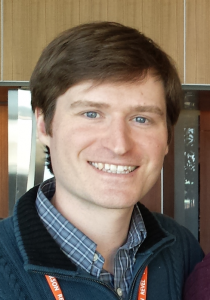 David Weintrop
David Weintrop
Postdoctoral Researcher, UChicago STEM Ed
Chicago, Illinois
David Weintrop is a postdoctoral researcher at UChicago STEM Ed at the University of Chicago. He has a doctorate in learning sciences from Northwestern University and a bachelor of science degree in computer science from the University of Michigan. Before starting his academic career, he spent five years working as a developer at a pair of software startups in Chicago. David’s research focuses on the design, implementation, and evaluation of accessible and engaging introductory programming environments. He is also interested in the use of technological tools in supporting exploration and expression across diverse contexts including science, technology, engineering, and math classrooms and informal spaces. His work lies at the intersection of human-computer interaction, design, and learning sciences. David won the gold medal in the Student Research Competition at the 2015 ACM Computer Science Education conference for his dissertation work and has presented his research at Google, the Massachusetts Institute of Technology, and conferences around the world.
Development Staff
Pat Yongpradit
Chief Academic Officer, Code.org
Pat Yongpradit is the chief academic officer for Code.org, a nonprofit dedicated to promoting computer science education. As a national voice on K–12 computer science education, his passion is to bring computer science opportunities to every school and student in the United States. Throughout his career as a high school computer science teacher, he inspired students to create mobile games and apps for social causes and implemented initiatives to broaden participation in computer science among underrepresented groups. He has been featured in the book American Teacher: Heroes in the Classroom and in 2010 was recognized as a Microsoft Worldwide Innovative Educator. He hold a bachelor’s degree in neurobiology, a master’s degree in secondary education, and is certified in biology, physics, math, health, and technology education. While Pat currently spends more time focused on computer science from a national perspective, his heart is still in the classroom.
Katie Hendrickson
Advocacy and Policy Manager, Code.org
Katie Hendrickson is an advocacy and policy manager at Code.org. She works on state policy and advocacy issues, including state implementation of computer science education initiatives. Prior to joining Code.org, she was a 2014–15 Albert Einstein Distinguished Educator Fellow, placed at the National Science Foundation in the Computer and Information Sciences and Engineering Directorate. She taught secondary mathematics for six years at Alexander Middle School and Athens Middle School, where she received the Buck Martin Secondary State Award for excellence in mathematics teaching from the Ohio Council of Teachers of Mathematics. She co-founded the Southeast Ohio Math Teachers’ Circle, and her dissertation research explored teacher identity and professional development. She holds a doctorate in curriculum and instruction and a master’s degree in cultural studies in education from Ohio University.
Rachel Phillips
Director of Research and Evaluation, Code.org
Rachel Phillips is the director of research and evaluation at Code.org. Prior to joining Code.org, she conducted evaluations and developed curriculum for the Big History Project. Additionally, she was the program director for a National Science Foundation-funded research project studying the impacts of tinkering and making on low-income youth and how those activities can increase participation in the science, technology, engineering, and math (STEM) fields. Her research interests include student and teacher learning in formal education spaces, with a particular focus on traditionally marginalized and underserved youth. Most of her research has been in the context of the STEM fields, and her more recent publications are related to learning in online gaming environments and the methodology used to study learning in these types of environments. She earned her doctorate in learning sciences from the University of Washington in 2011 and a master of arts in teaching from American University in 2006.
Editor: Debbie Carter — Educational Consultant
Intern: Miranda Parker — Georgia Tech
Operations: Lian Halbert — Code.org
Advisors
Alana Aaron — New York City Department of Education
Aman Yadav — Michigan State University, CSTA Board member
Ben Shapiro — University of Colorado (Boulder)
Brian Dorn — University of Nebraska (Omaha)
Chinma Uche — Greater Hartford Academy of Math and Science, CSTA Board member
Dave Reed — Creighton University, CSTA Board Chair
Deborah Seehorn — CSTA Board Past Chair, Standards Co-chair
Don Miller — NYC Software Engineering Program
Fred Martin — University of Massachusetts Lowell
Helen Hu — Westminster College
Jeff Forbes — Duke University
Jill Denner — Education Training Research
Joanna Goode — University of Oregon
Josh Caldwell — Code.org
Kathi Fisler — Worcester Polytechnic Institute
Karen Brennan — Harvard Graduate School of Education
Meg Ray — Cornell Tech
Mark Guzdial — Georgia Tech
Owen Astrachan — Duke University
Phillip Eaglin — ChangeExpectations.org
Sheena Vaidyanathan — Los Altos School District (CA), CSTA K-8 Board member
Shuchi Grover — SRI International
Tammy Pirmann — CSTA, School District of Springfield Township (PA)
Uri Wilensky — Northwestern University
Yasmin Kafai — University of Pennsylvania
Consultants/Process Advisors
Courtney Blackwell — Outlier Research & Evaluation, UChicago STEM Ed
Jeanne Century — Outlier Research & Evaluation, UChicago STEM Ed
Jennifer Childress — Achieve
Tom Keller — Maine Mathematics and Science Alliance
Heather King — Outlier Research & Evaluation, UChicago STEM Ed
